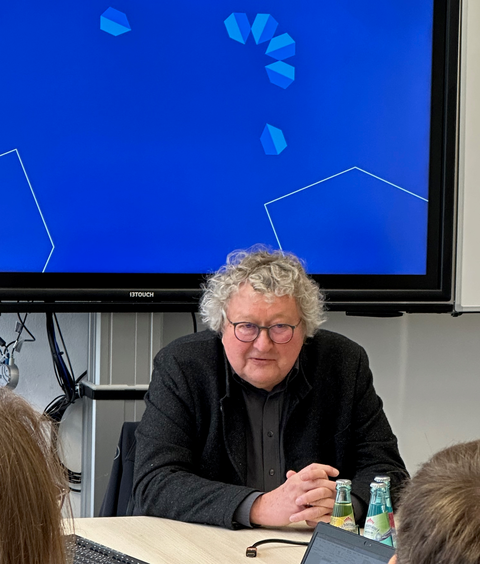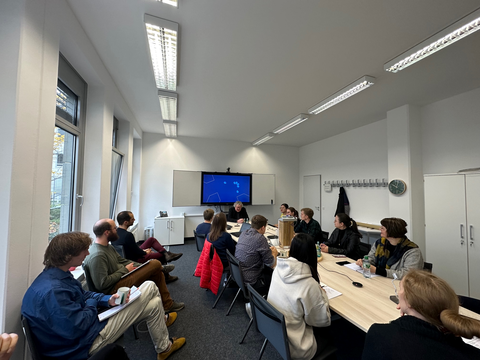Nov 09, 2023
Reunion with Emeritus Prof. Dr. Werner J. Patzelt
The retired and still very active Prof. Werner J. Patzelt held the Chair of Political Systems and Comparative Politics at TU Dresden until 2019 and successfully supervised a doctoral project in the 1st and 2nd Boysen-TU Dresden Research Training Group. Since September 2022, he has been dedicated to answering European questions. To this end, he heads a think tank in Brussels called MCC Brussels as Research Director under the leadership of the leading Hungarian knowledge and talent center Mathias Corvinus Collegium (MCC). On November 2, 2023, Prof. Patzelt took the time to visit the fellows of the Boysen-TUD Research Training Group at the Falkenbrunnen and explain his work and the issues that concern him and his team. The core topic is the European Union and the question of its future development.
The EU as an economic community is a success story, but it is stumbling. Nationalist tendencies in the member states are growing stronger and are calling for the European Parliament to leave or for its powers to be reduced. If the EU is to remain united in the future and strengthen the European market, it is therefore necessary to reconsider which areas are successful and where there may be room for improvement. It is precisely these topics that are the focus of the think tank. The three main research questions are:
- What makes the European Union what it is? What unites its members and what is worth protecting?
- Which reforms are necessary and will help to strengthen trust in the work of the institutions?
- What does the future of the EU look like in a post-occidental world? What can and does the EU want to be if its economic power loses strength in a global context?

Prof. em. Werner J. Patzelt bei seiner Präsentation
Research in a think tank is different from research at a university, says Prof. Patzelt. Results have to be achieved in a shorter time, which is why a large part of the work is outsourced to experts who prepare and deliver presentations and papers on given topics. The information obtained in this way is then discussed and supplemented by the team's own knowledge. Ultimately, the team of around 25 employees is too small to cope with the wide range of topics without external support. The aim is not to produce traditional publications, but to influence the political debate. To this end, easily accessible books are published, social media channels are maintained, lectures are held and much more. This is because the public discourse in Brussels is often very one-sided, explained Prof. Patzelt. His Institute wants to stimulate alternative ways of thinking and acting.
In any case, it is clear that the EU has an interesting and certainly not always easy path ahead of it. There is hope that the right decisions will be made, supported by scientific findings. Research cannot be regarded as completely apolitical.
We would like to thank Prof. em. Werner J. Patzelt for his time and his illuminating insights. How nice that the Boysen-TUD Research Training Group is not forgotten in Brussels either!

